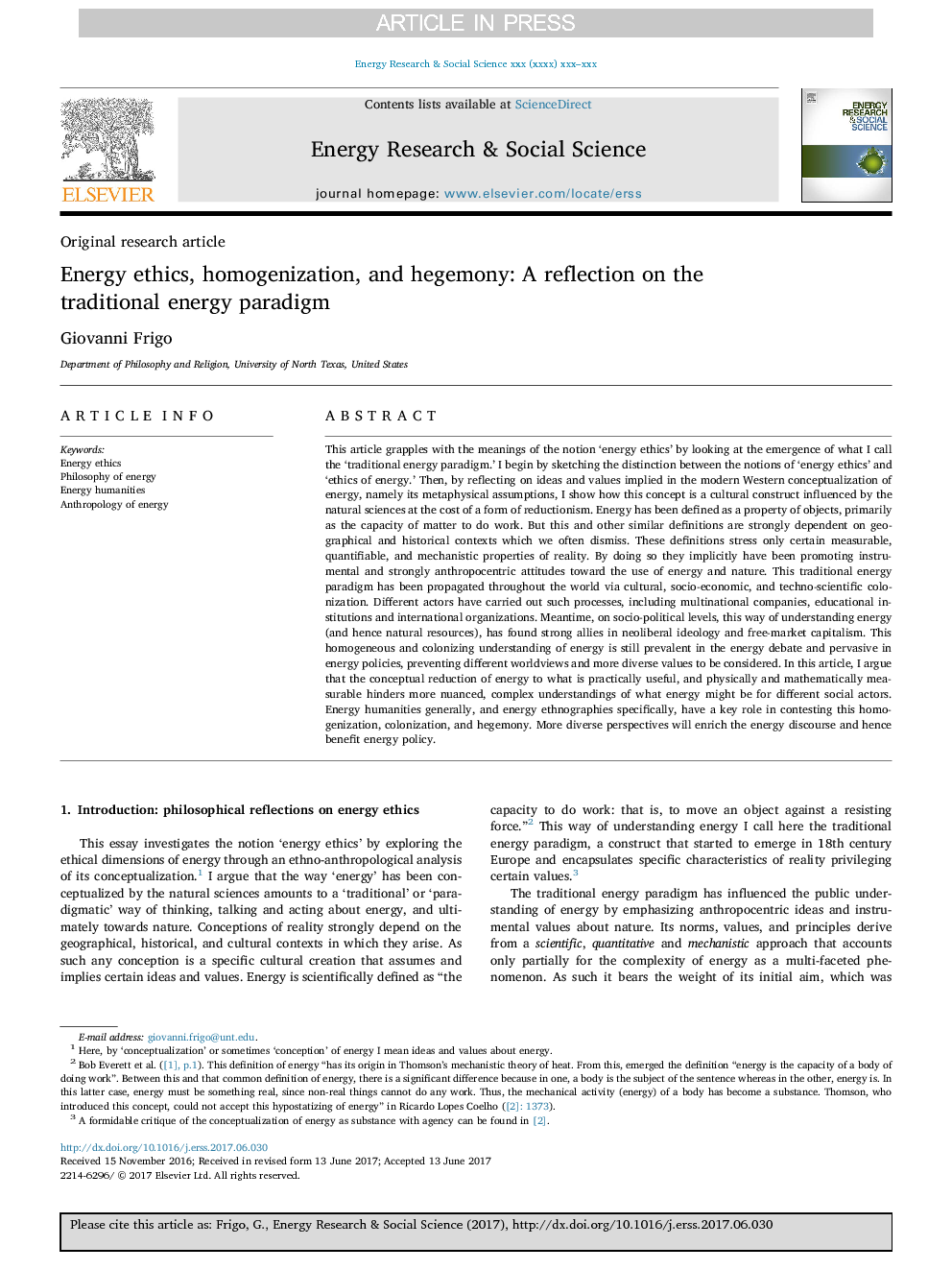ترجمه فارسی عنوان مقاله
اخلاق انرژی، همگن سازی و هژمونی: انعکاسی از پارادایم انرژی سنتی
عنوان انگلیسی
Energy ethics, homogenization, and hegemony: A reflection on the traditional energy paradigm
| کد مقاله | سال انتشار | تعداد صفحات مقاله انگلیسی |
|---|---|---|
| 94234 | 2017 | 11 صفحه PDF |
منبع

Publisher : Elsevier - Science Direct (الزویر - ساینس دایرکت)
Journal : Energy Research & Social Science, Volume 30, August 2017, Pages 7-17
ترجمه کلمات کلیدی
اخلاق انرژی، فلسفه انرژی، علوم انسانی انرژی، انسان شناسی انرژی،
کلمات کلیدی انگلیسی
Energy ethics; Philosophy of energy; Energy humanities; Anthropology of energy;

